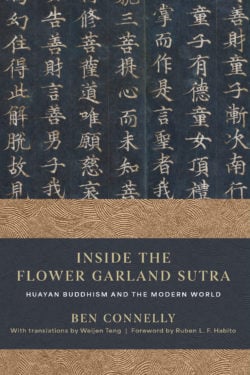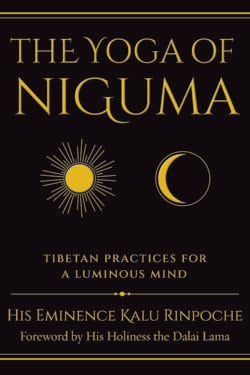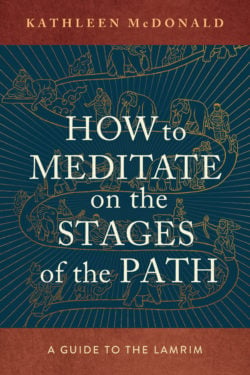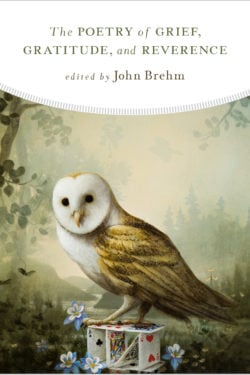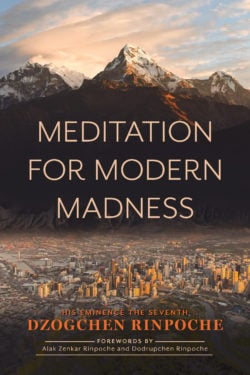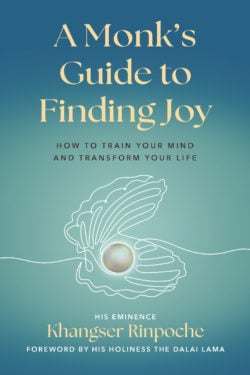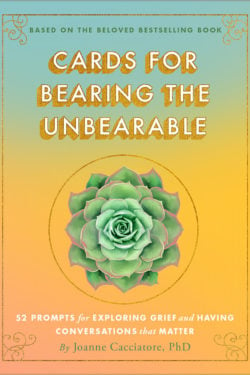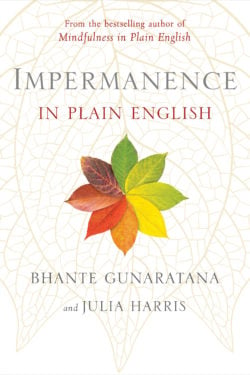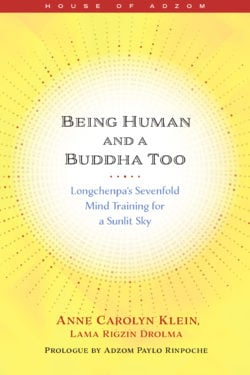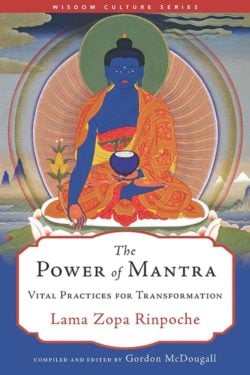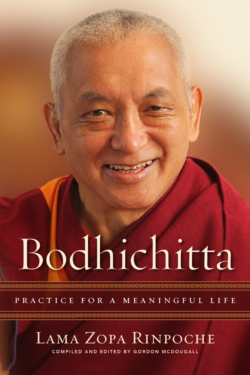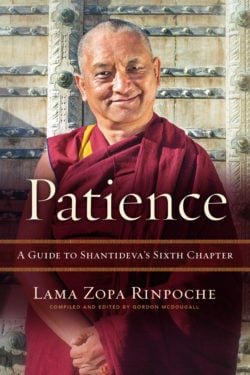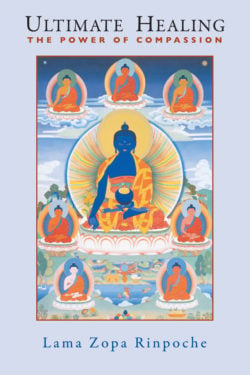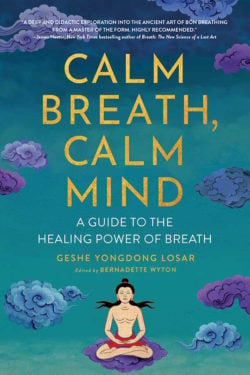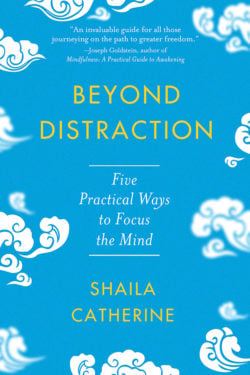Gail Andersen Stark has been quietly infiltrating the San Francisco world of business with Buddhist teachings for thirty-plus years. The cofounder of a highly regarded real estate company, she has guided and mentored hundreds of new agents and clients by gently utilizing the concepts of integrity, kindness, and grace. Her passion is to help make these ancient principles available and accessible to a world in need. She lives in Sausalito, California, and can be found online at creatingalifeofintegrity.com.

“A lovely, practical, intimate, and wise book. Read and you can enjoy an intimate conversation with a great teacher, and learn how to lovingly refine the study your own mind.”—Jack Kornfield, author of A Path with Heart
CREATING A LIFE OF INTEGRITY
In Conversation with Joseph Goldstein
- Add to Cart Paperback $18.95
- Add to Cart eBook $11.99
Creating a Life of Integrity is our personal trainer for strengthening our integrity muscles.
When we don’t speak or act from our own sense of integrity, we feel lousy. Find out how you can live with more integrity—and subsequently more joy—as you follow these lively conversations between Joseph Goldstein, a founder of the modern mindfulness movement, and Gail Stark, a businesswoman and his student and friend of twenty-five years.
As Joseph and Gail unpack the components of integrity—generosity, virtue, renunciation, wisdom, courage, patience, truthfulness, resoluteness, loving-kindness, and equanimity—we discover each is a step on a path that transports us to an empowered place of clarity, commitment, and, consequently, more joy. As we strengthen and weave these qualities into our daily lives they become our trusted first response in a world that needs our integrity now.
Discover More
Inside the Flower Garland Sutra
Available early! Use code fgs20 and get 20% off Inside the Flower Garland Sutra through July 14.
A Soto Zen teacher explores the core teachings of the ancient Flower Garland school of Buddhism through an innovative and engaging narrative showing how to put these teachings into practice.
Huayan Buddhism arose in the sixth century in China rooted in the Mahayana Flower Garland Sutra. The teachings of Huayan and the sutra that inspired it had a profound influence on Chan and Zen. Huayan is relational, practical, and positive. Its emphasis on interdependence, celebration of the sensual world, and diversity of people and practices provides inspiration for what Thich Nhat Hanh called “engaged Buddhism”.
With Inside the Flower Garland Sutra Zen teacher Ben Connelly explains the significance of Huayan teachings for Buddhist practice. Each chapter is a commentary on one of the thirty lines of Uisang’s “Song of Dharma Nature”—a seminal Korean text that summarizes key aspects of Huayan thought—thus providing a broad overview of Huayan teachings and their practical implications for contemporary life, with a mix of testimonies from real-life situations and references to influential Buddhist texts.
Arising fifteen hundred years ago, Huayan has made a deep impact on East Asian Buddhism, and has much to offer during this era when many folks see ever-deepening divisions. Connelly explores how Huayan offers particular wisdom for those concerned about how to care for their own lives as they work to end harms such as ecological devastation, poverty, militarism, addiction, marginalization, and exploitation.
The Yoga of Niguma
Now available! Get 20% off the cover price with code niguma20 until August 5.
Immerse yourself in the extraordinarily transcendent practice of the yoga of Niguma.
The yoga of Niguma comes to us from a secret tradition passed down over hundreds of years by Buddhist yogis in Tibet. The practice originated with the eleventh-century female yogini Niguma, who mastered and transmitted a tradition of remarkable practices that culminate in physical, spiritual, and emotional wellness. In this book, His Eminence Kalu Rinpoche, a Tibetan master who holds this lineage for today’s generation, is now opening up the practice to make its extraordinary benefits accessible to the modern yogi.
The yoga of Niguma consists of twenty-five sets of yogic exercises. Some are physically challenging while others are quite subtle in nature; all are grounded in meditation on the breath. Kalu Rinpoche illuminates the practice by sharing his own personal journey with the yoga of Niguma and how the lineage came to be. He also teaches us how we can prepare the mind for this practice with meditation and how to balance our emotions. Then, Rinpoche takes us step-by-step through the twenty-five illustrated sequences of Niguma yoga. Coauthor Michele Loew, an international yoga teacher, shares supportive Hatha yoga techniques that will bolster your Niguma yoga practice.
The yoga of Niguma is a revered method that integrates body, mind, and breath. Dive in to discover for yourself a gradual, profound groundswell of subtle awakening.
Rinpoche and Michele have recorded two full-length videos that demonstrate Niguma yoga sequences and supportive hatha yoga postures and supplement the instructions in the book. Click here to learn more and watch the videos.
You may also be interested in Rinpoche’s courses from Wisdom, Niguma’s Dream Yoga and The Illusory Body and Mind.
How to Meditate on the Stages of the Path
Deepen your meditation by diving into the practices of the lamrim—the stages of the path to enlightenment.
Buddhist tradition tells us that enlightenment is possible for each and every one of us. It’s actually the best thing we can do for others and for the world, but also the best thing we can do for ourselves, because it means being free from all misery, pain, depression, dissatisfaction, and negative emotions, and abiding forever in peace, joy, love, and compassion. What could be more wonderful than that?
Kathleen McDonald (Sangye Khadro), a Western nun with decades of experience and author of the bestselling book How to Meditate, guides us through the next step in our meditation practice: the transformative meditations on the Tibetan lamrim stages to enlightenment. She helps us see that the whole purpose of meditation is to transform our mind in a constructive way. For this to happen, we need to become so thoroughly familiar with the lamrim topics that they become our natural way of thinking and living our life. This warm and encouraging guide takes us through meditations on these lamrim topics, such as:
- impermanence
- refuge
- karma
- the four noble truths
- bodhichitta
- the six perfections: giving, ethics, patience, joyous effort, concentration, and wisdom
How to Meditate on the Stages of the Path offers practical advice, support, and step-by-step guidance on how to meditate on the stages of the path to enlightenment that will transform the practice of new meditators and seasoned practitioners alike.
The Poetry of Grief, Gratitude, and Reverence
Explorations on a journey through the darkest and brightest moments of our lives, the poems gathered here are explorations of loss, of thanksgiving, of transformation. Some show a path forward and others simply acknowledge and empathize with where we are, but all are celebrations of poetry’s ability to express what seemed otherwise inexpressible, to touch deep inside our hearts—and also pull ourselves out of our selves and into greater connection with the world around us.
Includes poems by
Rainer Maria Rilke, Robert Frost, Elizabeth Bishop, Czesław Miłosz, Seamus Heaney, Billy Collins, Joy Harjo, Danusha Laméris, Ada Limón, Kevin Young, Arthur Sze, Ellen Bass, Li-Young Lee, Natasha Trethewey, and many more, plus the editor’s essay on appreciative attention.
John had recorded guided poetry meditations to accompany several of the poems found in this anthology. To learn more and listen to these meditations, please click here.
Listen to a Wisdom Dharma Chat with John and host Daniel Aitken recorded in October 2023.
Meditation for Modern Madness
Dzogchen is an ancient Tibetan tradition that is perfect for countering the stress of our modern lives. A simple and quick method, Dzogchen is practical and direct, and open to us all—you simply need to recognize the great potential that is naturally born within everyone.
In his highly anticipated first book, His Eminence the Seventh Dzogchen Rinpoche, Jigme Losel Wangpo, shows us how our everyday lives can be turned into spiritual practice—not only to ease our stress, but to allow the true nature of our mind to reveal itself, right now, on the spot. The Dzogchen view is the highest view, the view from the top of the mountain. We need to build a platform that will hold the view, and Dzogchen Rinpoche provides the meditations and advice for living that will help you do just that. In turn, you’ll find true peace in a mind at rest.
A Monk’s Guide to Finding Joy
A profound and practical guide to uncovering your own wise mind and kind heart.
We all want to find happiness. But how do we go about it? In this easygoing and clear-sighted guide, celebrated Buddhist meditation and philosophy master His Eminence Khangser Rinpoche provides us with down-to-earth advice on how to train our minds and find our own innate wisdom and kindness along the way. He helps us see the profound insight that is open to us all, and how it can awaken us to the truth of the way things are. This insight into the truth, and the practices that help you cultivate this awareness, transform suffering into wisdom and compassion—and ultimately joy.
A Monk’s Guide to Finding Joy brings the ancient Tibetan mind-training tradition into our twenty-first-century lives. Through stories, real-life examples, reflections, and meditation practices—all told with warmth and humor—H.E. Khangser Rinpoche shows us how we can transform the suffering of our life into happiness. When we train the mind from within the context of our difficult emotions, we can find true joy, just as the oyster transforms sand into a pearl.
Bearing the Unbearable
In this journaling book, grief expert Joanne Cacciatore provides support and guidance, as writing prompts, for anyone experiencing traumatic loss and grief. This beautifully designed book offers 52 writing prompts for exploring grief and journaling about those whom we’ve lost. Writing about those we’ve lost can be part of a contemplative practice, alone or with therapists, family, friends, or with a grief support group. However you use this journal and its writing prompts, please take the time to write from the heart, really be with each prompt, dive deeply—and do so with a spirit of love and compassion for all beings, including yourself.
A Note from Dr. Jo:
This journal is an invitation. A passage. An open heart. Use the prompts throughout for deep contemplation. Write your experiences, feelings, memories of your beloved. Know that, wherever you are, you are not alone in this. We grievers, we rememberers, walk the same road, some ahead and some behind. But we walk together. Let this journal be the invisible thread that weaves together our hearts and souls and minds as we endure one more day—together, never alone. Let this journal be a space in which you remember and grieve and explore.
You can also explore Dr. Jo’s books, Bearing the Unbearable and Grieving is Loving, her Cards for Bearing the Unbearable, as well her Wisdom Academy course, Bearing the Unbearable.
Dharma Talk
A new volume of original poetry from the bestselling creator of Poetry of Impermanence, Mindfulness, and Joy.
In Dharma Talk, award-winning poet John Brehm explores the perennial themes of aging, compassion, emptiness, nonseparation, and more. At once poignant and humorous, Brehm’s gentle, wry poems remind us that the personal and the universal are not different—and point us to the Dharma of everyday life.
Click here to watch the author read the poem “Something and Nothing” from Dharma Talk.
Listen to a Wisdom Dharma Chat with John and host Daniel Aitken recorded in October 2023.
Cards for Bearing the Unbearable
Grief sometimes leaves us without words. Yet narrating our feelings, thoughts, and experiences can be so helpful in relating to our inner world. These cards are an invitation to begin that process.
Impermanence in Plain English
The bestselling author of Mindfulness in Plain English guides the reader toward a direct and personal realization of one of the foundational tenets of Buddhism: all things that arise must pass away.
Once-youthful bodies grow old and weary. New thoughts, feelings, and sensations arise and fade every second. Impermanence is not some abstract metaphysical idea. This is the Dhamma, and you can see it for yourself.
Drawing from Pali scriptures and writing with fresh, direct language, Bhante Gunaratana and his student Julia Harris highlight the Buddha’s exhortation that we must directly realize for ourselves the liberating insights that free us from suffering and cyclic existence, without relying only on the word of religious authorities or academic or philosophical musings.
Being Human and a Buddha Too
In writing that sparkles and inspires, Anne Klein (Lama Rigzin Drolma) shows us how to liberate our buddha nature to be both human and a buddha too.
This first volume in the House of Adzom series centers on Longchenpa’s seven trainings in bodhicitta, our awakened mind, the ultimate purpose of our practice and training. Anne Klein’s original composition masterfully weaves in Adzom Paylo Rinpoche’s commentary and Jigme Lingpa’s five pith practices and commentary on the trainings, in keeping with Longchenpa’s skillful integration of sutra, tantra, and Dzogchen, to resolve our most challenging questions about what awakening involves and how it relates to the truth of our human situation right now. As foundational teachings for Dzogchen practitioners, the seven trainings are framed as contemplations on impermanence, the adventitiousness of happiness and its short duration, the multiple causes of death, the meaninglessness of our worldly activities, reliance on the Buddha’s good qualities, the teacher’s pith instructions, and ultimately nonconceptual meditation on bliss and emptiness, clarity and emptiness, and reality itself.
The Power of Mantra
Energize your practice with the potent energy of mantra.
In this book, beloved teacher Lama Zopa Rinpoche guides us through the most popular mantras in Tibetan Buddhism: Shakyamuni Buddha, Chenrezig, Manjushri, Tara, Medicine Buddha, Vajrasattva, and more.
A mantra—literally “that which protects the mind”—is a series of Sanskrit syllables that evoke the energy of a particular buddha or bodhisattva. It works as a sacred sound that brings blessings to ourself and others, and as a tool to transform our mind into one that is more compassionate and wise.
In clear and succinct teachings, Lama Zopa shows us why we need different mantras and how each mantra works. He also explains their importance and power, giving specific instructions for practicing them. The exquisite, full-color illustrations of the deities that accompany the text make this book a beautiful guide, one suitable for both beginners and experienced practitioners.
The Wisdom Culture Series, published under the guidance of Lama Zopa Rinpoche, provides English-language readers with key works for the study and cultivation of the Mahayana Buddhist path, especially works of masters within the lineage of Lama Tsongkhapa and the Geluk school of Tibetan Buddhism.
Bodhichitta
An accessible, inspiring book on one of the most important topics in Tibetan Buddhism, written by one of its renowned masters who has an international following of thousands.
Bodhichitta is a Sanskrit word meaning “the mind of enlightenment” or “the awakening mind”—the mind that wishes to achieve enlightenment in order to lead all other beings into that same state. It is the attitude of the bodhisattva, of the person who makes the compassionate vow to save others from suffering. In this book, the renowned teacher Lama Zopa Rinpoche shows us how to achieve it.
First, Lama Zopa gives a clear and comprehensive explanation of bodhichitta, its benefits, and its importance to the path. Then, he walks us through the two main methods for achieving bodhichitta: the seven points of cause and effect, and equalizing and exchanging self and others. Finally, the book closes with meditation instructions to guide and strengthen our practice.
Readers will find Bodhichitta to be a comprehensive guide to this core Buddhist principle, one rich in both accessible philosophical explanation and concrete advice for practitioners.
Patience
The sixth chapter of Shantideva’s classic A Guide to the Bodhisattva’s Way of Life is a beacon of inspiration that shows what patience—one of the essential actions of the bodhisattvas—can really mean, leading us to profound self-realization and a heightened determination for awakened action in the world.
Lama Zopa Rinpoche—a teacher whose very name means “patience”—explores Shantideva’s teachings verse by verse, unpacking their lessons for the modern reader, including:
- overcoming anger,
- accepting suffering,
- and respecting others and finding happiness in their happiness.
In explaining this quintessential quality of a bodhisattva, Rinpoche shows us ordinary beings the profundity of the practice of patience and the relevance it has in our everyday lives.
“Shantideva was like us, but he worked on his mind until he became completely free from delusions . . . A Guide to the Bodhisattva’s Way of Life has inspired countless people since it was written over thirteen hundred years ago. It tells us that we too can develop our mind to the levels of realizations that the great masters have attained—and it shows us how to do it.”—Lama Zopa Rinpoche
The Six Perfections
The six perfections are the actions of the bodhisattvas—holy beings who have transcended selfless concerns. But they’re also skills we can and should develop right now, in our messy, ordinary lives.
In this clear, comprehensive guide to the backbone of Mahayana Buddhist practice, Lama Zopa Rinpoche walks us through each of the six perfections:
- charity
- morality
- patience
- perseverance
- concentration
- wisdom
As he carefully describes each perfection, he not only reveals the depth of its meaning and how it intertwines with each other perfection, but he also explains how to practice it fully in our everyday lives—offering concrete ways for us to be more generous, more patient, more wise. With the guidance he gives us, we can progress in our practice of the perfections until we, like the bodhisattvas, learn to cherish others above ourselves.
“The perfections are the practices of bodhisattvas, holy beings who have completely renounced the self; they have transcended selfish concerns and cherish only others. Each perfection is perfect, flawless. Each arises from bodhichitta and is supported by the other perfections, including the wisdom of emptiness. Because of that, a bodhisattva generates infinite merit every moment, whether outwardly engaged in working for others or not. A bodhisattva’s bodhichitta never stops.”
—Lama Zopa Rinpoche
Ultimate Healing
We experience illness on a physical level, but in order to be healed, we must understand where true healing begins: within our hearts and minds. In Ultimate Healing, internationally renowned meditation master Lama Zopa Rinpoche helps us to recognize the root of illness and gives us the tools to create our future happiness. Beginning with stories of people who have recovered from disease through meditation, Rinpoche addresses the central role played by karma and by the mental habit of “labeling” in causing illness, and shows how meditation and other thought techniques for developing compassion and insight can eliminate the ultimate cause of all disease.
Ultimate Healing shows us that by transforming our minds, especially through the development of compassion, we can eliminate the ultimate cause of all disease. In addition to relating stories of people who have recovered from disease through meditation, Lama Zopa presents practical healing meditations, including white-light healing, compassion meditation, “taking and giving”, and techniques to cure depression.
Calm Breath, Calm Mind
Discover ancient Tibetan breath practices for calming your mind and improving your health in this plain-English guide.
Over millennia, many Eastern traditions have developed practices that use the powerful healing energy of breath to treat physical, emotional, and mental problems. In Chinese, this energy is called chi; in Sanskrit it is called prana; and in Tibetan it is called lung.
Lung is life-giving energy that moves through our bodies. A lack or imbalance of lung can create illnesses of body and mind or cause emotional struggles such as confusion, anger, and sadness. In this book Geshe YongDong Losar, a scholar and monk in the ancient Bön tradition of Tibet, guides us through time-tested practices to help balance our lung. His deep knowledge—garnered through years of study and practice—renders the practices simple and achievable, creating a clear path for us toward greater calmness, strength, and clarity.
“Over and over I have personally witnessed, both in myself and in my students, the breath’s clear potential to heal and deeply transform lives. I truly believe that in the future such practices will play an important role as a medicine for preventing and treating physical, emotional, and mental maladies. I am glad that Geshe YongDong is making these practices widely available, and I’m sure that by doing so, he is bringing benefit to countless lives.”
—from the foreword by Geshe Tenzin Wangyal Rinpoche
Beyond Distraction
The mind can be a potent tool, used to guide extraordinary achievements, inspire good works, and incline your spiritual path toward peace and awakening. But the mind can also produce thoughts that lead to suffering. For many people, thoughts run rampant and seem to oppress or control their lives. Even the Buddha tells us that before his enlightenment, he sometimes found his mind preoccupied by thoughts connected with sensual desire, ill will, and harm. But he figured out how to respond to thoughts skillfully and developed a step-by-step approach to calm the restless mind. Now, Insight Meditation teacher Shaila Catherine offers an accessible approach to training the mind that is guided by the Buddha’s pragmatic instructions on removing distracting thoughts. Drawing on two scriptures in the Middle Length Discourses of the Buddha, Shaila shows you how to overcome habitual modes of thinking, develop deeper concentration, and discover the insights into emptiness that are vital for a liberating spiritual path.
Following the Buddha’s pragmatic approach, Shaila guides you through five steps for overcoming distraction and focusing the mind:
- Replace unwholesome thoughts with wholesome thoughts.
- Examine the dangers of distracting thoughts.
- Avoid it, ignore it, forget it.
- Investigate the causes of distraction.
- Apply determination and resolve.
Each chapter includes exercises and reflections to help you cultivate the five steps to deeper concentration. You’ll learn about your mind and develop your ability to direct your attention more skillfully in meditation and daily activities. And ultimately, you’ll discover for yourself how these five steps boil down to one key realization: In the moment you recognize that a thought is just a thought, you will find yourself on the path to a life of remarkable freedom.


